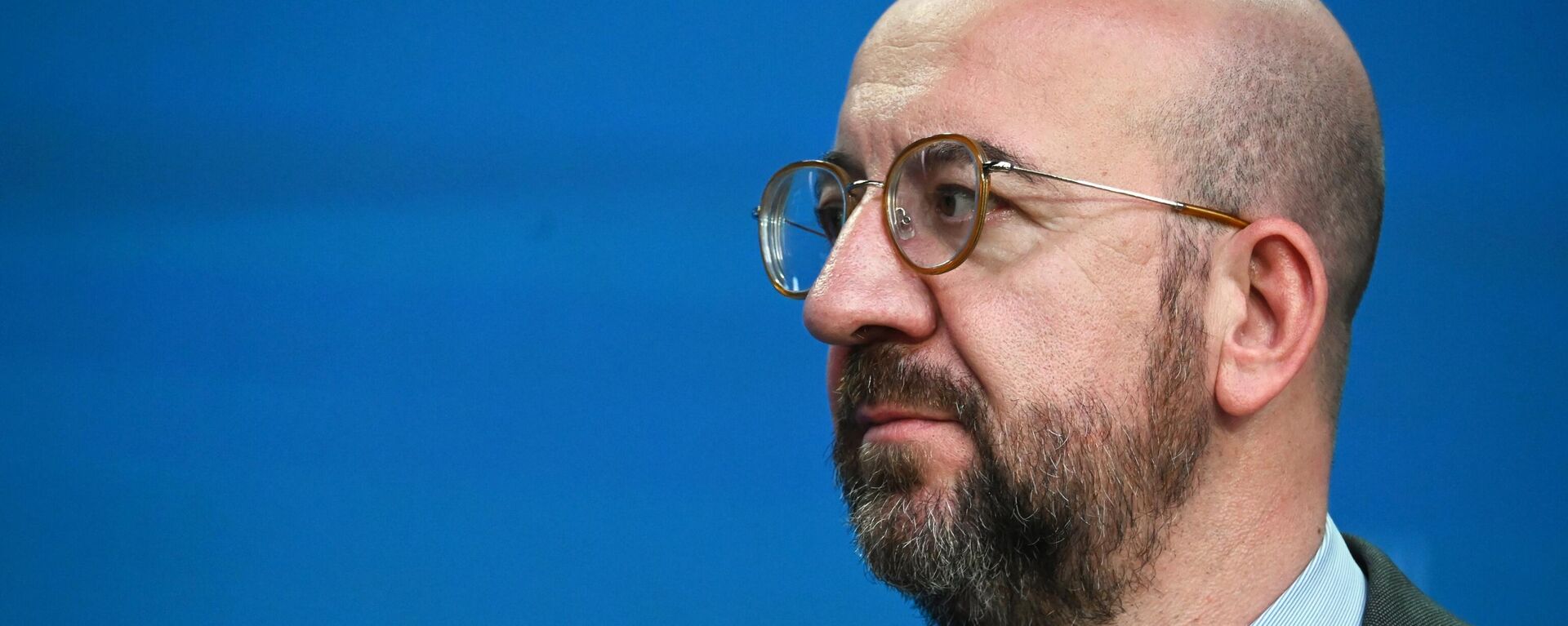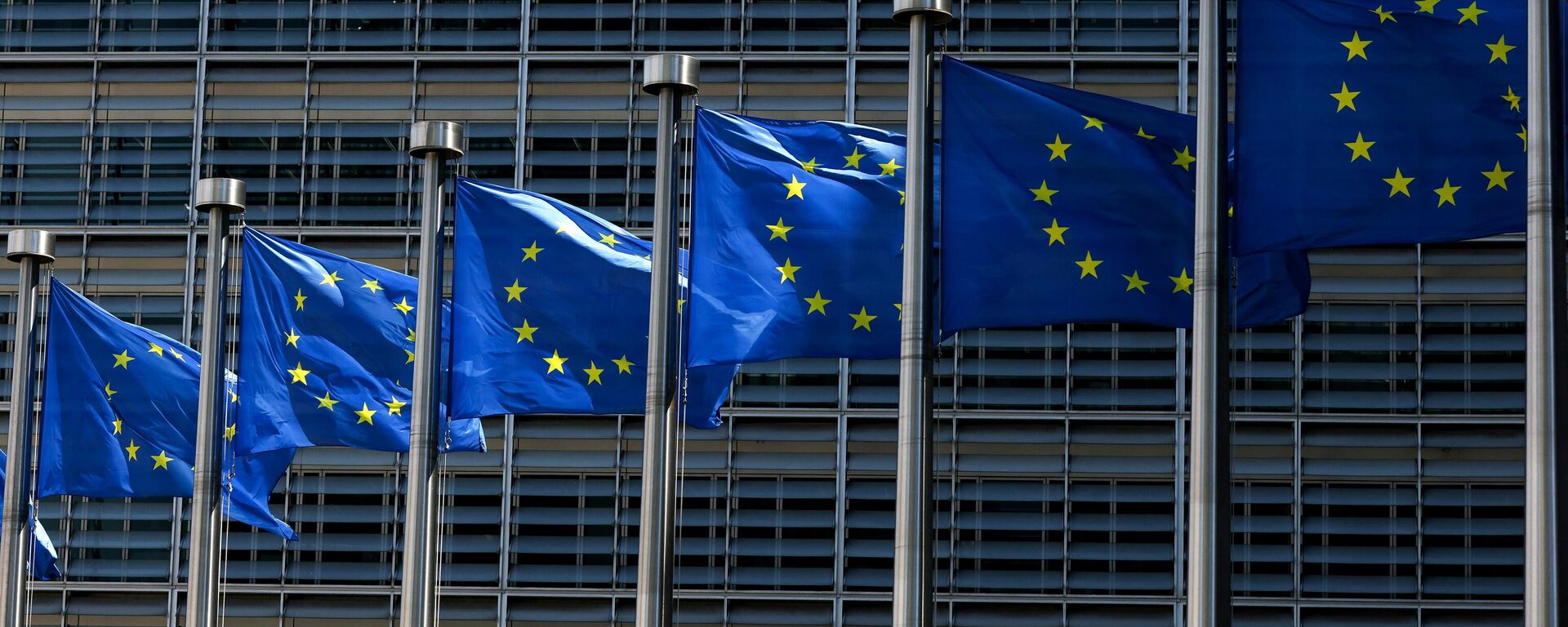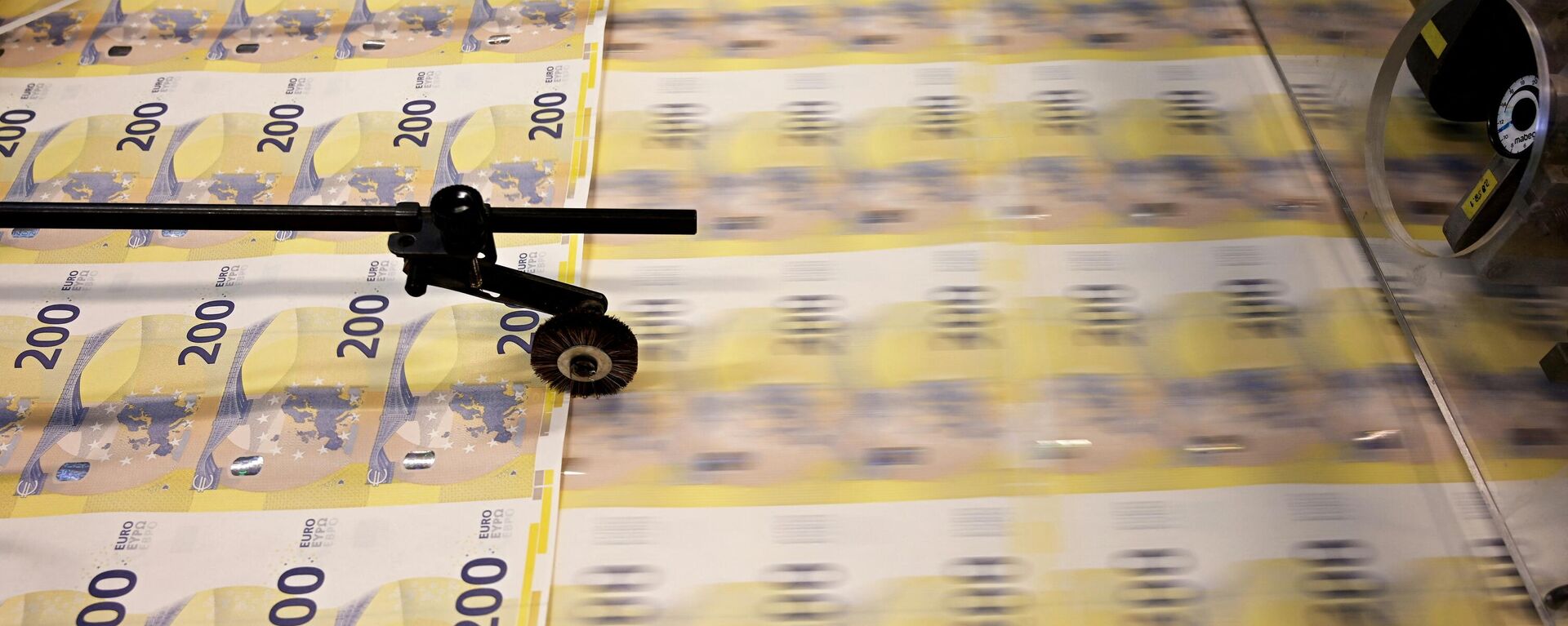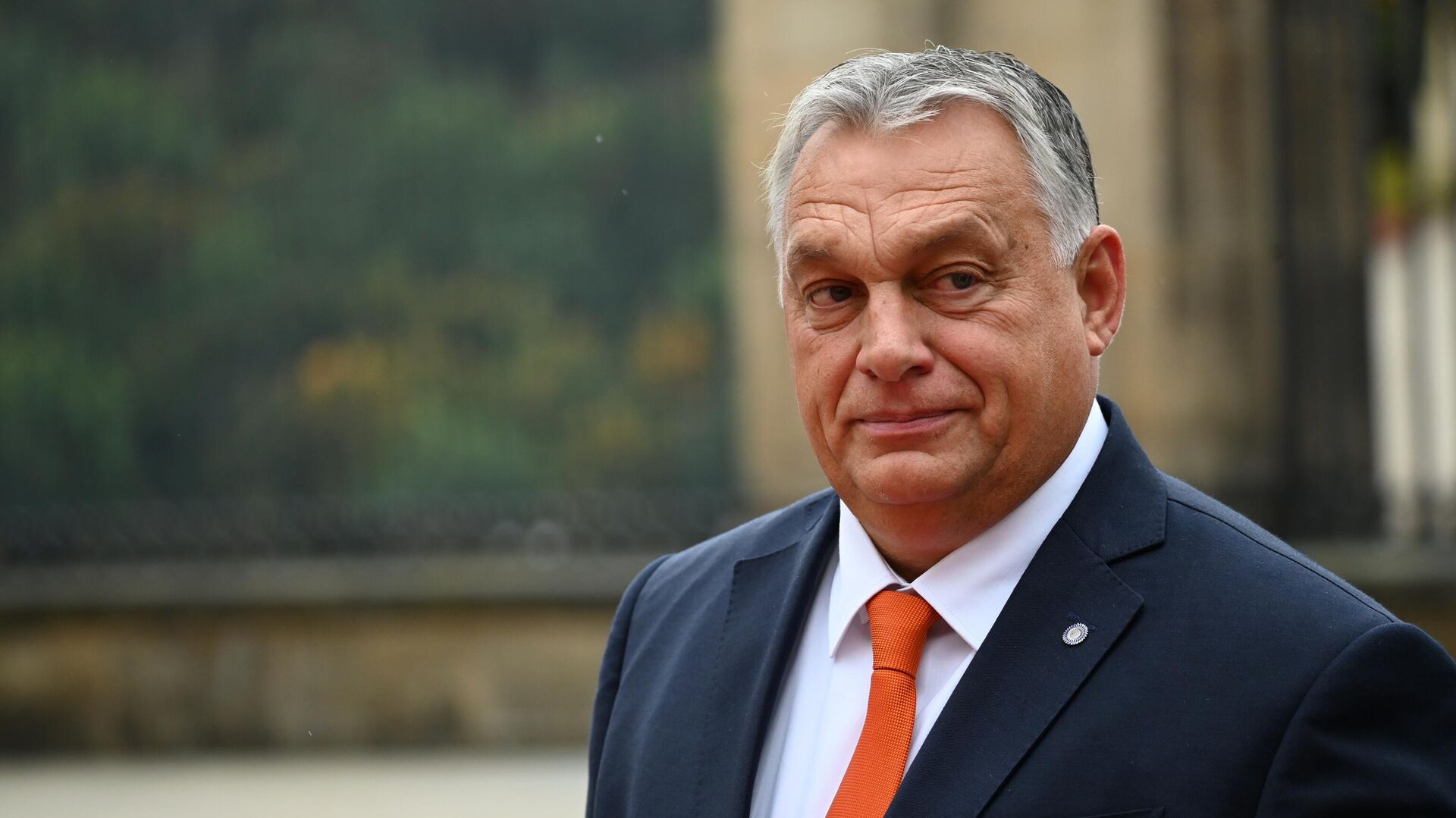https://sputnikglobe.com/20240108/could-hungarys-victor-orban-fill-european-council-presidents-shoes-1116060452.html
Could Hungary's Victor Orban Fill European Council President's Shoes?
Could Hungary's Victor Orban Fill European Council President's Shoes?
Sputnik International
European Council President Charles Michel is due to step down in July with Hungarian Prime Minister Victor Orban possibly taking the job temporarily if EU leaders are unable to find a successor by then.
2024-01-08T18:53+0000
2024-01-08T18:53+0000
2024-01-08T18:53+0000
world
viktor orban
europe
european council
european parliament
olaf scholz
geert wilders
european union (eu)
alternative for germany (afd)
russia
https://cdn1.img.sputnikglobe.com/img/07e7/0a/06/1113987388_0:0:3078:1731_1920x0_80_0_0_b2ee7ff55c0c7c5036cef4cd3d66a1a4.jpg
Charles Michel announced that he will run for election to the European Parliament in the June elections — and quit as president of the European Council of national leaders if elected.Under the bloc's rules, if the 27 EU member states cannot find a replacement president by July, the position will be given to the leader of the nation holding the rotating presidency.But Hungary is slated to assume the council's six-month chairmanship on July 1. That could leave Prime Minister Victor Orban, well-known for his conservative and Eurosceptic stance, the new head of the council."There would be important repercussions in the context of the internal dialectics of the various European institutions," Graziani continued. "However, it would also be an important opportunity for Orban to negotiate, realistically, for the benefit of greater degrees of freedom for his nation and, at the same time, paradoxically, also a great opportunity for the so-called 'Europeanists' to test - in a direct and institutional confrontation - one's pro-Brussels beliefs and its economic and security policies."Graziani also noted the trend — often bemoaned by the Western mainstream media — of European conservative parties gaining popularity amid the inflationary crisis.Dutch populist right-wing leader Geert Wilders and his Party For Freedom (PVV) came tops in November's Dutch general election, while the Alternative for Germany (AfD) is polling around 21 to 23 percent, making it the second-strongest political party in the country. Some experts suggest that the rise of the right in Europe is at least partially driven by the Ukraine fatigue and the fear of pro-Palestinian protests across the Old Continent.Graziani did not rule out that "the European Parliament will be completely transformed with the result influencing the future policies of the European Union."If Orban assumes the council's presidency he could re-write the bloc's agenda, especially when it comes to EU military aid to Ukraine, the scholar argued. Budapest has opposed arming Kiev since the outset of the conflict, insisting that Ukraine cannot win. So far, Hungary has provided mostly humanitarian aid to Ukrainians."Let us keep in mind that if Orban assumes the presidency of the council, he will in any case have to take into account the institutional role and, within this role, he will also be able to work for a reorientation of the European posture regarding the issue of aid to Kiev," Graziani said.It would be hard for Orban to fill Michel's shoes, even temporarily, given his opposition to arming Ukraine and the overall liberal agenda of the EU establishment, according to Christian Schweiger, visiting professor at the chair for comparative European governance systems in the Institute for Political Science at the Chemnitz University of Technology in Germany."If he was European Council president, I would expect him... to want to convince the others to change the position on Ukraine to be more Russia-friendly. But again… there isn't much support for such a stance," the professor continued.When asked who would be widely supported by EU major member states as Michel's replacement, Schweiger named Austrian Prime Minister Karl Nehammer, Donald Tusk, who has held the same position in the past, and outgoing Dutch Prime Minister Mark Rutte.Schweiger said those figures have better odds of replacing Michel than Orban, but all bets were still off on the final choice.
https://sputnikglobe.com/20240107/belgian-party-confirms-eus-michel-will-run-in-european-parliament-election-1116041287.html
https://sputnikglobe.com/20231229/eu-believes-it-can-provide-funds-for-ukraine-without-hungary-1115873492.html
https://sputnikglobe.com/20240108/germany-singlehandedly-pays-for-half-of-all-eu-aid-to-ukraine-minister-reveals-1116058230.html
russia
Sputnik International
feedback@sputniknews.com
+74956456601
MIA „Rossiya Segodnya“
2024
News
en_EN
Sputnik International
feedback@sputniknews.com
+74956456601
MIA „Rossiya Segodnya“
Sputnik International
feedback@sputniknews.com
+74956456601
MIA „Rossiya Segodnya“
european council, european council president charles michel, europe, ukraine, victor orban, eu leaders, russia, russian special operation in ukraine, orban opposes arming ukraine
european council, european council president charles michel, europe, ukraine, victor orban, eu leaders, russia, russian special operation in ukraine, orban opposes arming ukraine
Could Hungary's Victor Orban Fill European Council President's Shoes?
European Council President Charles Michel is due to step down in July — with Hungarian Prime Minister Victor Orban possibly taking the job temporarily if EU leaders are unable to find a successor by then.
Charles Michel announced that he will run for election to the European Parliament in the June elections — and quit as president of the European Council of national leaders if elected.
Under the bloc's rules, if the 27 EU member states cannot find a replacement president by July, the position will be given to the leader of the nation holding the rotating presidency.
But Hungary is slated to assume the council's six-month chairmanship on July 1. That could leave Prime Minister Victor Orban, well-known for his conservative and Eurosceptic stance, the new head of the council.
"This eventuality poses a political problem of some importance, since if this possibility were to come true, at the helm of one of the most important European institutions we would have a politician who has made "anti-Europeanism" and his fight against the Eurobureaucracy of Brussels his flag," Tiberio Graziani, chairman at Vision & Global Trends — International Institute for Global Analyses, told Sputnik.
"There would be important repercussions in the context of the internal dialectics of the various European institutions," Graziani continued. "However, it would also be an important opportunity for Orban to negotiate, realistically, for the benefit of greater degrees of freedom for his nation and, at the same time, paradoxically, also a great opportunity for the so-called 'Europeanists' to test - in a direct and institutional confrontation - one's pro-Brussels beliefs and its economic and security policies."

7 January 2024, 17:55 GMT
Graziani also noted the trend — often bemoaned by the Western mainstream media — of European conservative parties gaining popularity amid the inflationary crisis.
Dutch populist right-wing leader Geert Wilders and his Party For Freedom (PVV) came tops in November's Dutch general election, while the Alternative for Germany (AfD) is polling around 21 to 23 percent, making it the second-strongest political party in the country. Some experts suggest that the rise of the right in Europe is at least partially driven by the Ukraine fatigue and the fear of pro-Palestinian protests across the Old Continent.
Graziani did not rule out that "the European Parliament will be completely transformed with the result influencing the future policies of the European Union."
"The presence of an anti-system leader at the helm of the Council — even on an interim basis — would constitute a first anticipation of polarization within the European Union," the pundit said. "In this framework, the main question would be the following: would an accentuated polarization cause an irreversible crisis in the European Union?"

29 December 2023, 10:30 GMT
If Orban assumes the council's presidency he could re-write the bloc's agenda, especially when it comes to EU military aid to Ukraine, the scholar argued. Budapest has opposed arming Kiev since the outset of the conflict, insisting that Ukraine cannot win. So far, Hungary has provided mostly humanitarian aid to Ukrainians.
"Let us keep in mind that if Orban assumes the presidency of the council, he will in any case have to take into account the institutional role and, within this role, he will also be able to work for a reorientation of the European posture regarding the issue of aid to Kiev," Graziani said.
It would be hard for Orban to fill Michel's shoes, even temporarily, given his opposition to arming Ukraine and the overall liberal agenda of the EU establishment, according to Christian Schweiger, visiting professor at the chair for comparative European governance systems in the Institute for Political Science at the Chemnitz University of Technology in Germany.
"Orban is the odd one out," Schweiger told Sputnik. "Orban is the one who obviously does not support a firm stance against Russia under [President Vladimir] Putin, but would rather want a cooperative stance. So that rules him out. On the issue of migration obviously he's currently the most extreme leader in the EU, although we also have Robert Fico in Slovakia, who is similarly strict when it comes to migration policy. That wouldn't rule him out completely because the other member states have moved closer to his position, looking at what has been happening in Germany recently. All the domestic debate about, the increasing migration into Germany and the changes in the government's migration policy."
"If he was European Council president, I would expect him... to want to convince the others to change the position on Ukraine to be more Russia-friendly. But again… there isn't much support for such a stance," the professor continued.
When asked who would be widely supported by EU major member states as Michel's replacement, Schweiger named Austrian Prime Minister Karl Nehammer, Donald Tusk, who has held the same position in the past, and outgoing Dutch Prime Minister Mark Rutte.
"Potentially maybe Kyriakos Mitsotakis in Greece, he's a rather moderate prime minister, depending on if he would want the position. I think, who has a good chance would potentially be Macron. But Macron is of course, not a leader like a prime minister like others – he’s the president of France," Schweiger said. "Chancellor Olaf Scholz, I think he’s on the brink of having to step down."
Schweiger said those figures have better odds of replacing Michel than Orban, but all bets were still off on the final choice.

8 January 2024, 15:16 GMT





